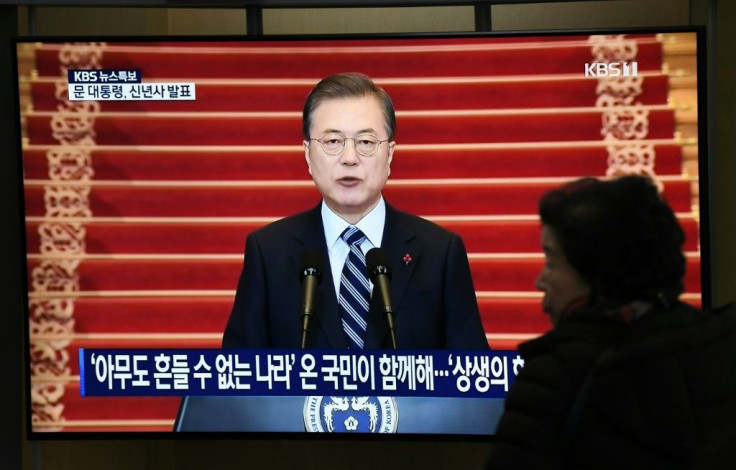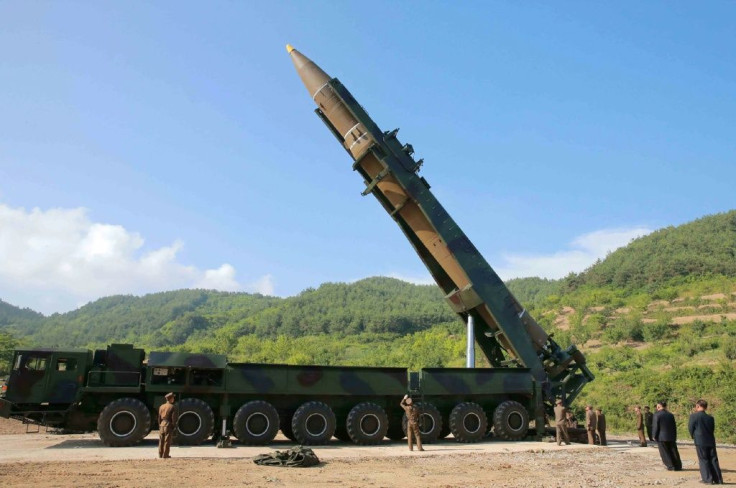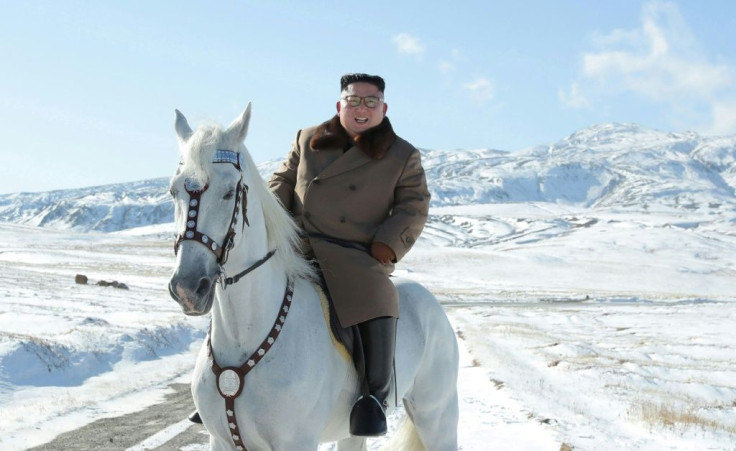South Korea's Moon Seeks Kim Jong Un Visit To Seoul

South Korean President Moon Jae-in on Tuesday called for better relations with the North so leader Kim Jong Un can visit Seoul, despite Pyongyang's abandonment of its nuclear and missile test moratoriums.
Moon's appeal came after Kim threatened a demonstration of a "new strategic weapon" at a four-day ruling party meeting last week, where he never mentioned South Korea.
Since the breakdown of Kim's summit with US President Donald Trump in Hanoi last year -- which left nuclear negotiations largely deadlocked -- Pyongyang has repeatedly lashed out at the South, saying it has "nothing to talk" about any more with Seoul.
One senior official has gone as far as describing the South's presidency as a "shy dog barking more wildly".
But Moon, who has long favoured engagement with the nuclear-armed North, doubled down on his dovish approach.
"I hope South and North Korea can make efforts together so that the conditions for Chairman Kim Jong Un's reciprocal visit can be arranged at an early date," Moon said in his annual New Year address.
The invitation for Kim to visit Seoul dates from the two leaders' last summit, in Pyongyang in September 2018, when the peninsula was basking in a diplomatic rapprochement.
Analysts suggested Moon's call was now unrealistic.

"I'm willing to meet repeatedly and talk ceaselessly" with the North, Moon said in his half-hour speech, which was broadcast live.
He also suggested Pyongyang and Seoul should consult on fielding a unified team at the Tokyo Olympics in July, which would march together at the opening ceremony.
The two Koreas' athletes took part together at the opening and closing ceremonies of the Pyeongchang Winter Olympics in the South two years ago, and subsequently formed a series of joint teams in other events.
A possible joint bid for Seoul and Pyongyang to co-host the 2032 Summer Games has even been mooted, with Moon on Tuesday calling the prospect "a golden opportunity for the South and North to show to the world that we are one people".
But the two capitals have held no discussions on the candidacy, and sporting ties have since entered a deep freeze -- North Korea gave up any prospect of its women's football team playing in Tokyo rather than take part in a qualifying competition in the South next month.

Pyongyang has also demanded the demolition of South Korean-built tourism facilities at Mount Kumgang in the North, saying it will operate tours there itself, and rejected discussions with Seoul on the issue.
But Moon said he would push for the resumption of South Korean visits to the peak, along with the re-opening of the Kaesong Industrial Complex where Southern firms employed Northern workers.
Both projects would currently violate the international sanctions imposed on Pyongyang over its nuclear and ballistic missile programmes.
Cheong Seong-chang, director of the Center for North Korean Studies at the Sejong Institute in Seoul, said it was "highly unlikely" the North would respond to Moon's address.
"There are some problems with the way the Seoul government perceives the current situation," he told AFP.
"There will be no political gain for Kim to visit Seoul at this point in time, given that the North has virtually stated it won't be talking to the US on nuclear issues."
Ahn Chan-il, a North Korean defector and researcher in Seoul, said the Moon administration had adopted an approach of "ceaseless unrequited love" to Pyongyang, but had been left with very few options.
"The way it has been dealing with the North -- in spite of Pyongyang's insults against the South -- has not been ideal," he said.
"There is virtually nothing the South can do as long as the UN sanctions remain on North Korea."
In his speeches to the full meeting of the Central Committee of the ruling Workers' Party last week, Kim acknowledged the North's economic situation was "serious" but made clear it was willing to live under sanctions to preserve its nuclear deterrent.
At his first field guidance visit of the year -- to the construction site of a fertiliser factory -- he described the situation as "severe", the official KCNA news agency reported Tuesday.
"The fiercer the adverse wind raised by the hostile forces gets, the fiercer our red flag will flutter," Kim added.
© Copyright AFP 2024. All rights reserved.





















